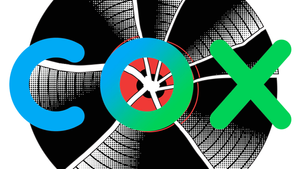An American appeals court ruling that saw Cox Communications let off the hook for ‘vicarious copyright infringement’ in a major music piracy case was “a stark break from a century of precedent” that will “prompt a race to the bottom to see how little can be done to deter online piracy”.
An amicus brief submitted to the US Supreme Court by a group of music industry organisations goes on to say that creators “need the full quiver of common law arrows” to battle online piracy, and that the appeals court ruling in the Cox case takes one of those arrows away.
Cox was found liable for both contributory and vicarious copyright infringement, and was told to pay $1 billion to the major record companies, who had sued for damages.
A company is liable for vicarious infringement if it profits from the direct infringement of other people. A lower court said that Cox did just that by selling internet access to users it knew had been accused of direct copyright infringement by illegally accessing and sharing music.
The Fourth Circuit Appeals Court overturned that ruling by, according to the new amicus brief, incorrectly stating that, to be liable for vicarious infringement, it had to be shown that Cox took “payments specifically connected to the infringing activity” or attracted customers “specifically (and only) for the purposes of infringement”. Neither of those requirements were met.
This narrow definition of vicarious infringement, the amicus brief insists, goes against common law precedent. And it’s a problem because, “given common features of internet services - including that the internet can be used for both legitimate and infringing purposes”, these “artificial constraints” will “almost never be met in a digital infringement case”.
The Fourth Circuit agreed that Cox was liable for contributory infringement, having not done enough to deal with repeat infringers among its customer base, but still overturned the vicarious infringement ruling. As a result, the lower court has been told to reconsider what damages Cox should pay, which could mean the total amount handed over to the majors is slashed.
Not wanting to lose their billion dollar payday, the major labels last month asked the Supreme Court to intervene and restore the vicarious infringement ruling.
Backing that call in the new amicus brief is the National Music Publishers’ Association, Recording Industry Association Of America, American Association Of Independent Music, Nashville Songwriters Association International and Songwriters Of North America, plus, from the book industry, the Association Of American Publishers.
The six organisations say that the fact Cox is still liable for contributory infringement is irrelevant, because the law recognises different kinds of infringement in order to stop different kinds of bad conduct. “Creators like the songwriters, composers, authors and performers”, the amicus brief continues, “need the full quiver of common law arrows to be able to effectively deter copyright infringement - especially in the digital realm”.
“As organisations representing a wide array of copyright owners”, the amicus brief concludes, “the question presented here - concerning the proper scope of vicarious liability for copyright infringement - is exceptionally important for amici and their members, along with the artists, songwriters and authors they represent and serve”.
Cox also wants the Supreme Court to intervene in this case, but it wants the contributory infringement ruling overturned. Four other ISPs recently submitted an amicus brief backing up Cox’s arguments.

